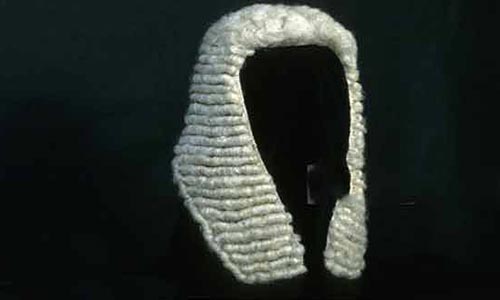KNOW THE LAW 06/04/2023
How to Become a Judge in Nigeria: Requirements for Judges

The judiciary is the third arm of government in Nigeria. This arm of government consists of judges, magistrates and lawyers who argue cases or give judgments in court and who are saddled with the protection of justice. The judiciary was established by section 6 of the 1999 constitution which provides that, the judicial powers of the country shall be vested in the courts of the federation.
However, from the judicial arm are distilled a group who form the bench. The bench consists of judges and magistrates, which are those who preside over matters or cases in the court. Before a person becomes a judge in Nigeria, it requires integrity, hard work and consistency; also, there are certain requirements that one needs to have accomplished before he or she can qualify to become a judge in Nigeria.
These criteria will be discussed according to the different courts in the country:
The Supreme Court
This is the apex court of the federation which is established by section 230 of the 1999 constitution. Judges of this court are constitutionally required to be of the maximum of 21 in number, and they are appointed by the president of the federation upon the recommendation of the National Judicial Council-a body that sees to the affairs of the bench; this appointment must be confirmed by the senate before it becomes valid as is provided by section 231(2) of the constitution. However, before a person is qualified for such recommendation and appointment, he/she must have been a qualified legal practitioner in Nigeria for a period of not less than 15 years.
The court of appeal
This court is the penultimate court in terms of superiority in Nigeria. It is established by section 237 of the 1999 constitution with a provision that it should not be constituted by less than 49 justices.
Before a person is appointed as a justice of the court of appeal, he/she must have been qualified to practice as a legal practitioner in Nigeria and must have been so qualified for a period not less than 12 years as provided in section 238(3) of the constitution. If the aforementioned qualification is met, the person is to be appointed by the president, upon the recommendation of the National Judicial Council.
The federal high court
The federal high court of the federation is established by section 249 of the 1999 constitution. This court is usually made up of such numbers of judges as is prescribed by an Act of the National Assembly. A person is appointed into the office of a judge of the court by the president of the federation, upon the recommendation of the National Judicial Council. However, before such appointment becomes valid, he/she must have been a qualified Nigerian legal practitioner for a period of not less than 10 years-S.250 (3).
The state high court
The state high court is established by section 270 of the 1999 constitution of Nigeria. Before a person is recommended and appointed into the office of a high court judge, he/she must have been qualified to practice as a legal practitioner in Nigeria for a period not less than 10 years as is stipulated in section 271 of the constitution. Such appointment is made by the Governor of the state, upon the recommendation of the National Judicial Council.
Sharia court of appeal of a state
Section 275 of the 1999 constitution provides for the sharia court of appeal of a state. However, its establishment in different states is optional according to the requirement of such state.
The judges of the sharia court of appeal are called kadis. A kadi is appointed by the governor of the state upon the recommendation of the national judicial council. For a person to hold the office of a kadi, he/she is required to:
Be a legal practitioner in Nigeria and has been so qualified for a period not less than 10 years, and has obtained a recognized qualification n Islamic law from an institution acceptable to the national judicial council; or
Have attended and obtained a recognized qualification in Islamic law from an institution approved by the national judicial council, and has held the qualification for a period not less than 10 years; and Has considerable experience in the practice of Islamic law, or Is a distinguished scholar of Islamic law.
Customary court of appeal of a state
Section 280 of the 1999 constitution established the customary court of appeal; however, its operation in a state is dependent on whether they want it or not.
The court shall consist of such numbers of judges as maybe prescribed by the state house of assembly. The appointment into the office of a judge of a customary court of appeal shall be made by the governor of the state upon the recommendation of the National Judicial Council. But for a person to qualify for such appointment:
He/she must have been a legal practitioner in Nigeria, and that he has been such for a period not less than 10 years, and in the opinion of the national judicial council, has considerable knowledge and experience in the practice of customary law.



